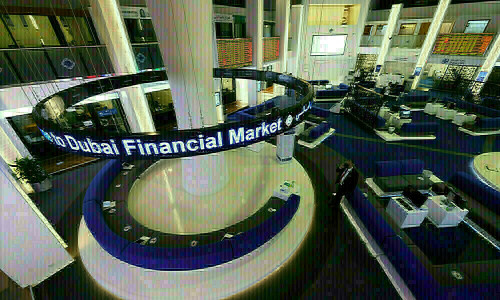Gulf Stock Markets Close Higher Amid Oil Price Surge and Trade Optimism
Most stock markets in the Gulf region concluded trading on a positive note on Thursday, fueled by rising crude oil values, corporate earnings releases, and growing anticipation regarding a possible trade agreement between the United States and China.
U.S. Treasury Secretary Scott Bessent stated on Wednesday that the elevated tariffs between the U.S. and China are unsustainable and must be lowered before trade discussions can advance. However, he clarified that President Donald Trump would not independently reduce tariffs on Chinese imports.
Furthermore, a Financial Times report indicated that Trump intends to exempt automakers from certain tariffs following extensive lobbying efforts by industry executives in recent weeks.
Saudi Arabia’s benchmark index increased by 0.7%, propelled by a 5.7% surge in the Saudi Arabian Mining Company. Al Rajhi Bank also experienced a rise of 0.8%.
Joseph Dahrieh, Managing Principal at Tickmill, noted that first-quarter earnings are expected to remain a central point of interest for investors in the upcoming weeks. He added that the rebound in oil prices also bolstered market sentiment.
In Abu Dhabi, the index climbed by 1.1%, supported by a 6.7% increase in Abu Dhabi Islamic Bank shares, which came a day after the bank announced a substantial increase in first-quarter profits.
Oil prices, which serve as a catalyst for the Gulf’s financial markets, recovered some ground as investors assessed a potential OPEC+ output increase in light of conflicting tariff signals from the White House and U.S.-Iran nuclear negotiations.
The Qatari index rose by 0.3%, with Qatar Islamic Bank shares increasing by 1.4%.
Conversely, Dubai’s primary share index decreased by 0.2%, bringing an end to a five-session streak of gains. This downturn was influenced by a 0.8% decline in the value of blue-chip developer Emaar Properties.
The Egyptian stock exchange was closed in observance of a public holiday.



Comments (0)
No comments yet. Be the first to comment!
Leave a Comment